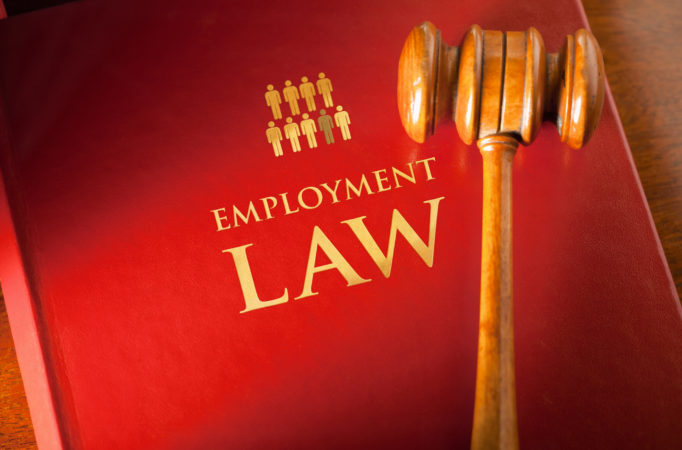Employment & Labor Law
COVID Rescue Plan Provides Free COBRA Coverage For Certain Employees
The American Rescue Plan Act of 2021 (ARPA) was signed into law by President Biden on March 11, 2021. In addition to other ways of helping individuals during the ongoing pandemic (e.g., stimulus checks), ARPA includes provisions for COBRA premium assistance for “Assistance Eligible Individuals” equal to 100% of the applicable premium. On April 7, 2021, the U.S. Department of Labor issued a set of Frequently Asked Questions (FAQs) to explain the new rules, along with model notices that can be used by employers to satisfy the notice requirements imposed by the rules. While employers are encouraged to read the full set of FAQs (available here), the following is a summary of the key points:
Assistance Eligible Individuals: Not all COBRA beneficiaries are eligible to receive COBRA premium assistance. The term “Assistance Eligible Individual” (AEI) is generally defined to include any COBRA qualified beneficiary who meets the following requirements during the period from April 1, 2021, through September 30, 2021: (a) the individual is eligible for COBRA continuation coverage by reason of a qualifying event that is a reduction in hours or an involuntary termination of employment (but not a termination due to gross misconduct), and (b) the individual in fact elects COBRA continuation coverage. However, an individual is not eligible for premium assistance if the individual is eligible for other group health plan coverage (such as coverage through a plan maintained by the employee’s new employer or the employer of the employee’s spouse).
Premium Assistance Period: The premium assistance can last from April 1, 2021, through September 30, 2021, but will end earlier if (a) the individual becomes eligible for coverage under another group health plan or becomes eligible for Medicare, or (b) the individual reaches the end of the maximum COBRA continuation coverage period. As an example, the regular 18-month COBRA period for an employee who was laid off on February 29, 2020, will end August 31, 2021. Therefore, the premium assistance will only be available to that employee from April 1, 2021, through August 31, 2021. An individual receiving COBRA premium assistance is required to notify the plan if the individual becomes eligible for coverage under another plan and will be subject to a tax penalty of $250 for failure to do so (or 110% of the premium subsidy if the failure is fraudulent).
Notice Requirements: ARPA imposes three separate notice requirements on employers, as follows: (a) the COBRA election notice provided in connection with a qualifying event that occurs during the premium assistance period (i.e., from April 1, 2021, through September 30, 2021) must include additional information such as a description of the AEI’s right to premium assistance, forms for establishing eligibility, and the AEI’s obligation to notify the plan of other available coverage; (b) notice of the availability of premium assistance must be provided no later than May 31, 2021, to each AEI who declined or terminated COBRA continuation coverage prior to April 1, 2021, and who would have some amount of time left in the AEI’s COBRA coverage period that was originally available (i.e., each AEI whose COBRA rights are attributable to a reduction in hours or involuntary termination occurring on or after October 1, 2019); and (c) notice of the expiration of the AEI’s premium assistance period must be provided at least 15 days, but not more than 45 days, prior to the expiration of the premium assistance period. (This includes all of those AEIs whose assistance will end on September 30, 2021, due to the general expiration of the assistance period on that date under the law.) Separate model notices are provided on the DOL website to assist employers in meeting all three of these notice requirements. The model notices are available here. As employers will face excise taxes as high as $100 per qualified beneficiary (but not more than $200 per family) per day for violations of these rules, timely delivery of all required notices is critical.
Election of COBRA with Premium Assistance and Payment of Premiums: Each AEI has 60 days after the election notice is provided to elect COBRA continuation coverage with premium assistance. An AEI who elects COBRA will pay nothing for that coverage during the assistance period. In fact, if an AEI pays the COBRA premium for a month in which the assistance is available, the employer must refund the payment to the individual within 60 days. The employer is required to cover the premium cost by paying the insurance provider (or, in the case of a self-funded plan, simply absorbing that cost). In turn, the employer will be reimbursed by the federal government for 100% of the premium via a Medicare payroll tax credit, reported quarterly on Forms 941.
Interaction With COVID-19 National Emergency Extended Deadlines: Under prior guidance issued by the DOL (including EBSA Disaster Relief Notice 2021-01), employers and employees have extended deadlines by which they must take certain actions with regard to employee benefit plans. In particular, the DOL guidance provides that a terminated employee can retroactively elect COBRA coverage (to the date active coverage was lost) as late, one year from the date on which the employee became eligible for relief via the extended deadline (or, if earlier, the end of the COVID-19 “Outbreak Period,” which remains ongoing). As an example, if an employee was required to make a COBRA election by March 1, 2021, under the normal COBRA rules, the employee can now make that election as late as March 1, 2022 (or the end of the Outbreak Period, if earlier). Importantly, the new FAQs confirm that this right is separate and distinct from the right to premium assistance, and the extended deadlines do not apply to the ARPA notice that must be provided by the employer by May 31, 2021, or AEI election periods related to premium assistance. Thus, in the foregoing example, the employee will still have until March 1, 2022 (or the end of the Outbreak Period, if earlier) to elect COBRA, but if the employee wants to avoid the COBRA premiums, the employee must elect COBRA within 60 days of the notice regarding premium assistance.
Small Employers and Mini-COBRA: Federal COBRA only applies to employers with at least 20 employees. Most states, however, have “mini-COBRA” laws that impose similar requirements on employers with fewer than 20 employees. The ARPA premium assistance is also available in the context of plans governed by mini-COBRA rules. The model notices published by the DOL include an alternative notice for use in these situations.
Please contact Gary Gunnett at (412) 288-2210 or ggunnett@hh-law.com with any questions on any of the above.
About Us
Claims and suits brought against employers by employees are a large part of the cases being handled by the Employment lawyers at Houston Harbaugh. We focus on assisting and counseling our clients to be positioned to avoid claims, and if the claims are brought, to be prepared to defend against them.

Craig M. Brooks - Practice Chair
An employment and labor attorney, Craig primarily represents management, providing advice on how to handle employee issues and actions, as well as defending or pursuing claims in court and before government agencies on matters.
An employment and labor attorney, Craig primarily represents management, providing advice on how to handle employee issues and actions, as well as defending or pursuing claims in court and before government agencies on matters including:
- Employment discrimination claims
- Wage and hour matters
- Sexual and other harassment investigations and claims
- Family and Medical Leave Act
- Wrongful discharge
- Labor/Union matters
- Restrictive covenants
- Affirmative action programs
- Defamation
- Privacy
Craig also represents individuals with advice and pursuing claims arising out of their employment.

